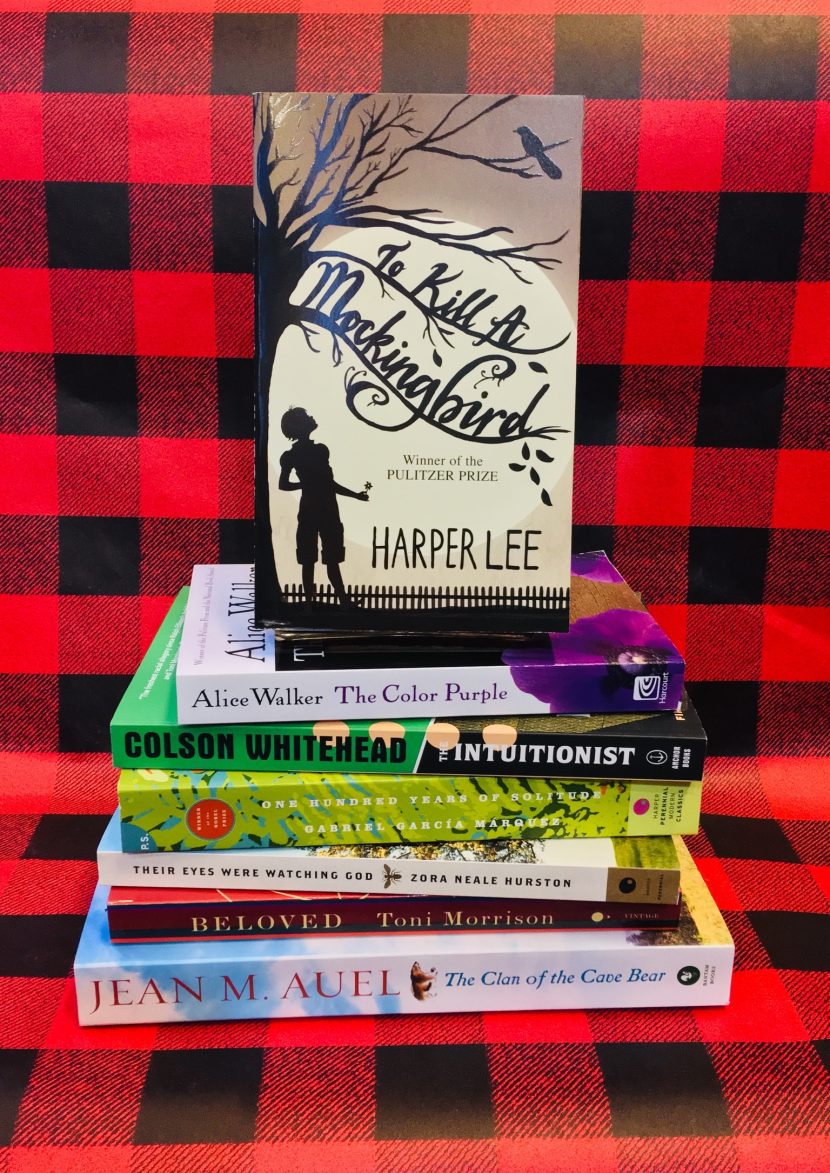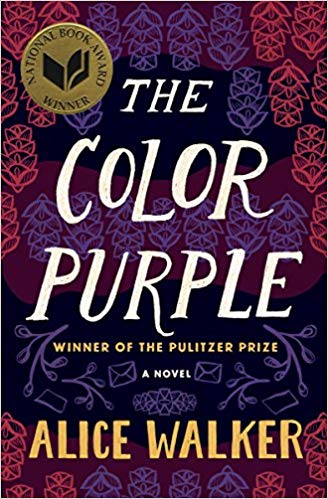This content is being reviewed in light of recent changes to federal guidance.
The Great American Read: America’s Best-Loved Literature Centers Whiteness, Not Diversity
 [By: Morgan McComb]
[By: Morgan McComb]
On October 23rd, 2018, the Public Broadcasting Service (PBS) announced the culmination of their Great American Read project, a survey of America’s 100 “best-loved” novels. The Great American Read began by conducting “a demographically and statistically representative survey asking Americans to name their most-loved novel.” Approximately 7,200 people participated in that survey, and the list that resulted from the survey was narrowed down to 100 by a panel of 13 literary industry professionals with a set of specific criteria: each author could get only one title on the list; a series counted as one title; the book had to be published in English and could only be fiction; and each panel member got to pick one book as well.
The intentions of PBS and The Great American Read were genuine, and the work spent on the accompanying television series and podcasts were ambitious; however, the issue with PBS’s The Great American Read is not its intention but the outcome. On October 23rd, PBS announced that, after a six-month-long period of voting open to the public, America’s best-loved book was Harper Lee’s 1960 novel To Kill a Mockingbird.
Why, I can hear you asking, is that a bad result? I don’t think it is a stretch for me to say that Harper Lee’s novel is a seminal, foundational novel in the canon of American literature, and it has the added benefit of having been read by many, many Americans because of its incorporation into American public education English curriculums. So why is its proclamation as “America’s Best-Loved Novel” an issue?
PBS was already embarking on a near-impossible task, and they were doing it for the sake of making substantive, educational programming to encourage reading and literacy for the American public at large. Trying to narrow all novels written in the English language down to a list of 100 titles that represent the reading interests of over 300 million Americans is not going to be perfect. But the list of 100 novels contained only 17 titles by writers of color. Only 17.

Many questions immediately come to mind about a process involving sample demographics, but one stands out: Who is PBS is actually engaging: who are the voters? No doubt PBS is to be commended for selecting works that appeal to a demographically diverse country, but the results of the survey are telling. What exactly do American readers look for in their literature? It appears to be stories that center whiteness written by white authors. Despite the fact that To Kill a Mockingbird is a beautifully-written novel that engages Southern racism and racial violence in the pre-Civil Rights era, the story is more about Scout and Atticus Finch than about Tom Robinson. We rarely hear Tom’s story from Tom himself, but rather filtered through his white lawyer, Atticus Finch.
To Kill a Mockingbird is, therefore, not only America’s best-loved novel; the results of PBS’s endeavor confirms that To Kill a Mockingbird is also America’s Great Race Novel. That is, when white American readers think about a book that talks about race, it’s not Nella Larsen’s 1929 novel Passing (not on the list); it is not Richard Wright’s 194o novel Native Son (not on the list); it is not Ralph Ellison’s 1952 novel Invisible Man (on the list, ranked #72), it is not James Baldwin’s 1968 novel Tell Me How Long the Train’s Been Gone (not on the list); it is not Alice Walker’s 1982 novel The Color Purple (on the list, ranked at #27 and the highest ranked entry written by a person of color); it is not Sandra Cisneros’s 1984 novel The House on Mango Street (not on the list); it is not Toni Morrison’s 1987 novel Beloved (on the list, ranked #60); it is not Khaled Hosseini’s 2004 novel The Kite Runner (not on the list); it is not Celeste Ng’s 2014 novel Everything I Never Told You (not on the list); it is not Paul Beatty’s 2015 novel The Sellout (not on the list); and it is not Colson Whitehead’s 2016 novel The Underground Railroad (not on the list, though his 1998 novel The Intuitionist is, ranked at #99).
I support reading To Kill a Mockingbird, as a whole because it gives us perspectives into a range of issues about the South and about the historical period. Likewise, it would be reductive to read any of these books from a singular perspective. Larsen’s Passing and Walker’s The Color Purple, for example, speak to an America of a particular time and place, giving focused attention to the complexities of gender, class, and color. But today, race is on everyone’s mind. For that reason, the results of the Great American Read are a barometer for how contemporary white America is thinking.
To Kill a Mockingbird is the novel that many continue to read and feel good just thinking about the very real, visceral state of race and racism in this country. White readers get to walk away from that story feeling like they’ve done something important by privately acknowledging that racism existed. I emphasize the past tense because there are also those white readers of Lee’s novel who think to themselves, “Well, it’s not like that anymore.” Far too many Americans have to live with the reality of violence, death, and injustice every day; they don’t get to put it down with the end of a book. What The Great American Read tells us is that white American readers still don’t trust people of color to craft and tell their own stories. They just don’t buy it, in both senses of the word.

Morgan McComb is a graduate student and instructor at the University of Kansas. Her research focuses on Black poetry since the Black Arts Movement. She works at the Project on the History of Black Writing and at the Raven Book Store in Downtown Lawrence, Kansas. She is originally from Clinton, Mississippi.